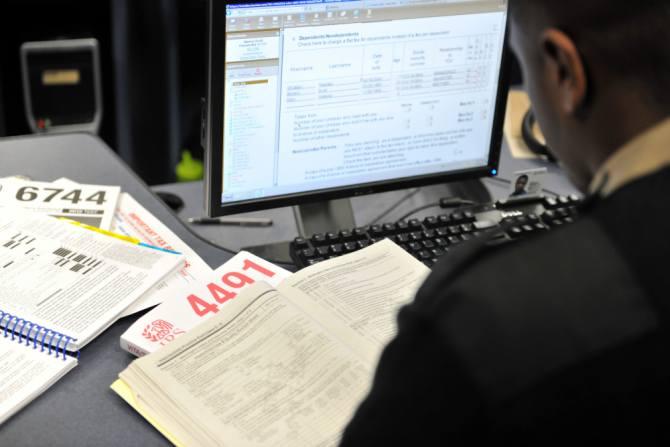Incomes such as dividend, interest on tax-free bonds, eligible gifts etc should also be reported even though they are tax exempt, suggests Sanjay Kumar Singh.

Individuals and Hindu Undivided Families constitute almost 98 per cent of e-filers.
This category tends to be most prone to making mistakes while filing returns.
Begin collecting relevant documents and file returns before the July 31 due date.
Here are some common mistakes to watch out for.
Choosing the incorrect ITR form
The ITR (income-tax return) form varies depending on source(s) of income.
Use of incorrect ITR form can result in the return being treated defective.
Such assessees are given intimation under Section 139(9), asking them to rectify the mistake within 15 days.
"If the error is not rectified, the return is treated invalid, and the I-T department will deem it to be a case of non-filing," says Suresh Surana, founder, RSM Astute Consulting Group.
Not disclosing several types of income
Interest income from banks -- savings and fixed deposits -- and post office must be reported while filing returns.
"Interest income should be shown in the return even when Form 15G or 15H has been filed, provided the earning is not exempt under Section 10 and total income exceeds the maximum amount not taxed," says Surana.
By filling Form 15G/15H, one can prevent tax deducted at source (TDS) if taxable income is below the basic exemption limit, or filer is a senior citizen.
Incomes such as dividend, interest on tax-free bonds, eligible gifts, etc should also be reported even though they are tax exempt.
"Filing tax return is not just about paying tax, but also about disclosing sources of income, so that if filer is questioned about his income at a later date, he can justify it using his tax return," says Deepesh Raghaw, founder, PersonalFinancePlan, a Securities and Exchange Board of India-registered investment advisor.
Income shown in return does not reconcile with Form 26AS
A discrepancy between income reported in Form 26AS and in the return filed by the filer can lead to the I-T department making preliminary adjustments and sending a notice under Section 143(1).
The assessee gets 30 days to respond online.
Sometimes the taxpayer does not include some income or the other while preparing her.his return that has been captured by Form 26AS.
"Before filing the return, look up Form 26AS to avoid such mistakes," says Raghaw.
Sometimes, credit for TDS is not included in Form 26AS.
In case, TDS has been deducted but is not reflected in Form 26AS, follow up with the entity doing the deduction to get the records updated.
Failure to claim deductions not shown in Form 16
Sometimes, certain exemptions do not get reflected in Form 16.
This can happen because proof of investment was submitted late.
Taxpayers are entitled to claim those exemptions while filing their return, provided they have the supporting documents.
Taxpayers also make mistakes when they have multiple Form 16s.
"They have difficulties in figuring out how much tax deduction to enter in their returns. They usually see a tax payable if they forget to disclose salary from first employer to the second employer," says Archit Gupta, founder and CEO, ClearTax.
Filing return after due date: Avoid this as late-filers are denied benefits.
Loss under 'capital gains' and under 'business or profession' cannot be carried forward for set-off in subsequent years (loss on house property is the exception).
- If a person has undertaken a high-value transaction (reflected in Form 26AS, based on annual information return filed by banks and other financial institutions), his income shown in tax return should be in line and not too low.
- Employees who did not submit rent receipt to employer, but still want to claim HRA, tend to miscalculate exempt portion of HRA in tax return.
- Computing fair market value of shares.
- Calculating indexed cost of purchase of an asset.
- Expenses that qualify for deduction as cost when a capital asset is sold.












